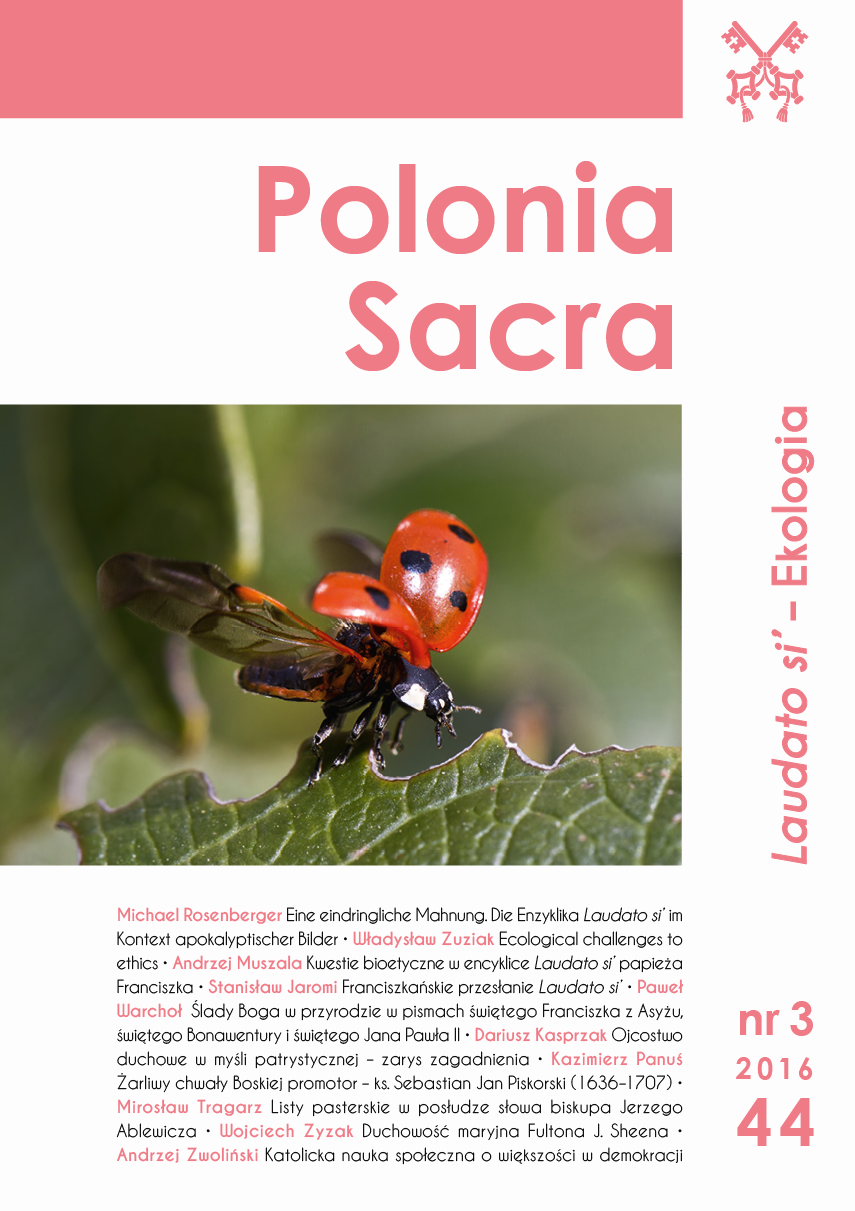Katolicka nauka społeczna o większości w demokracji
Catholic social doctrine about the majority in democracy
Author(s): Andrzej ZwolińskiSubject(s): Christian Theology and Religion, Theology and Religion, Pastoral Theology
Published by: Wydawnictwo Naukowe Uniwersytetu Papieskiego Jana Pawła II w Krakowie
Keywords: democracy; elections; majority; John Paul II; Catholic social teaching; values; voting
Summary/Abstract: The most important precondition of holding of democratic elections is political freedom in the country. No one and nothing, the emphasis of political power, terror or fraud, cannot affect the outcome of elections or define them from top. Important elements of the libertarian policy of the state are decentralization and local government. Citizens, groups and neighboring communities should be allowed to own initiatives and responsible – also in terms of making decisions who and how will perform the highest state functions. Sophisticated concepts of democracy, including the so called “community personalism”, may be of interest for societies regardless of spiritual culture and tradition. But true human freedom lies in the fact, that human decisions are passed in the personal center, the personal “I” who also pursues these decisions. Freedom is not a lack of determination, independence but a kind of determination – by himself, so a kind of self depending, self determinism. Therefore freedom has two dimensions, expressed in capacity to take “own” decisions and the power to realize what was decided. Democracy cannot replace freedom of the individual, relieve it in its decisions in the responsibility for the action it takes, also on its behalf.
Journal: Polonia Sacra
- Issue Year: 20/2016
- Issue No: 3
- Page Range: 173-189
- Page Count: 17
- Language: Polish

